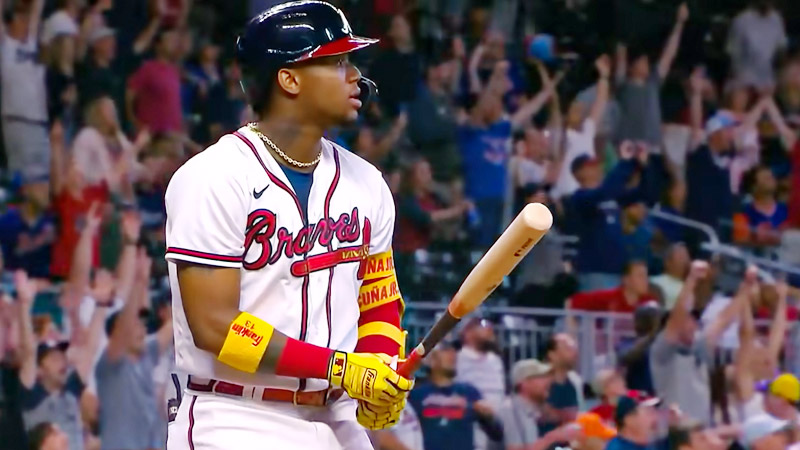Becoming a professional baseball player is a dream shared by many young athletes who have a passion for the sport.
The journey from amateur to professional level requires dedication, hard work, and a strong commitment to improving one’s skills.
In this article, we will explore what it means to be a professional baseball player, the challenges and difficulties associated with pursuing this career path, and the steps you can take to increase your chances of achieving your dream. So, stay focused.
What Does It Mean by A Professional Baseball Player?
A professional baseball player is more than just someone who plays baseball as a hobby or for recreational purposes. It is an individual who has reached the pinnacle of the sport, earning a living through their exceptional skills and performance on the field.
These athletes have surpassed the amateur level and have demonstrated their abilities at the highest level of competition.
The Global Reach of Professional Baseball
Professional baseball extends its reach beyond the borders of the United States, with various countries boasting their own professional leagues and teams.
While Major League Baseball (MLB) remains the most prominent league in the United States, the sport thrives internationally, offering talented players opportunities to showcase their skills on a global stage.
Facing Off Against the Best of the Best
Once a player is signed by a professional team, they enter an elite and fiercely competitive environment. They find themselves competing against other highly skilled athletes who have dedicated their lives to the sport.
This level of competition pushes players to constantly raise their performance, driving them to new heights of excellence.
The Unparalleled Skill and Dedication of Professional Baseball
The skill, athleticism, and strategic prowess displayed in professional baseball are truly unmatched. To succeed at this level, players must be committed to an ongoing journey of improvement and refinement.
This requires not only physical training to enhance strength, agility, and endurance but also a relentless pursuit of perfecting their techniques in hitting, pitching, fielding, and base running.
The Mental Challenges and Mental Toughness
Professional baseball is not only physically demanding but also mentally challenging. Players are faced with high-pressure situations, intense competition, and the need to perform consistently at a high level.
To thrive in this environment, players must cultivate mental toughness, developing the ability to stay focused, maintain concentration, and overcome setbacks and failures.
A Lifestyle Committed to the Game
Becoming a professional baseball player entails a lifestyle centered around the sport. Countless hours are dedicated to practice, workouts, and studying the game. The demanding schedule includes training sessions, team meetings, travel, and games.
To excel in this profession, players must embrace a rigorous lifestyle that demands unwavering commitment, sacrifice, and resilience.
Financial Rewards and Perks
Professional baseball players earn their livelihood through contracts with their respective teams. Salaries can vary based on factors such as skill level, experience, and market demand.
Alongside financial benefits, players enjoy additional perks and privileges. These include access to state-of-the-art facilities, travel opportunities, and exposure to a passionate and diverse fan base.
Is It Difficult to be a Professional Baseball Player?

Becoming a professional baseball player is undoubtedly a challenging endeavor. Here are six reasons why:
Intense Competition
The competition to secure a spot on a professional team is fierce. Thousands of talented athletes aspire to play at the professional level, resulting in a limited number of opportunities.
Skill Requirements
Professional baseball players must possess exceptional skills in various aspects of the game, including hitting, pitching, fielding, and base running. Developing and refining these skills to a high level of proficiency takes years of practice and dedication.
Physical Demands
Baseball requires a combination of strength, speed, agility, and endurance. Players must maintain peak physical condition to endure the demanding schedule and the rigors of the sport.
Mental Toughness
Baseball is a mentally challenging sport that requires focus, concentration, and resilience. Players must cope with pressure, setbacks, and failures while maintaining a positive mindset and the ability to perform under high-stress situations.
Long Season
The baseball season is grueling, spanning several months. Players must endure extensive travel, late-night games, and a rigorous schedule, which can take a toll on their physical and mental well-being.
Injuries to Endure
Baseball carries a risk of injuries, ranging from minor strains to major surgeries. Sustaining an injury can significantly impact a player’s performance and their chances of advancing to the professional level.
What to Do to Become a Professional Baseball Player?
To embark on the journey of becoming a professional baseball player, you need to follow a deliberate and focused approach. Here are essential steps that can help you pursue your dream:
Play Baseball Throughout Your School Years
Begin your baseball journey at a young age by participating in organized leagues, school teams, and summer tournaments.
This early involvement will provide you with invaluable experience, exposure, and opportunities to showcase your skills to a wider audience.
Practice Diligently to Improve Your Skills
Dedicate yourself to regular practice sessions that encompass all aspects of the game. Work meticulously on enhancing your hitting, fielding, throwing, and base running abilities.
Seek guidance from experienced coaches who can help refine your technique and address any weaknesses you may have.
Aim to be Drafted by a Professional Team
Take part in showcases, tournaments, and scouting events where professional team scouts evaluate players. Endeavor to capture their attention through stellar performances and showcase your immense potential.
The MLB draft serves as a platform for talented players to be selected by professional teams, opening the doors to a potential career in baseball.
Seek Professional Training and Guidance
If you are fortunate enough to be scouted and offered a contract, consider signing with a professional team or agent who can provide specialized training, guidance, and access to resources that will help you enhance your skills.
Working with professionals can significantly increase your chances of reaching the professional level and fine-tuning your abilities.
Explore Opportunities for Signing a Professional Contract
In the event that you haven’t been drafted, don’t lose hope. Take the initiative to explore alternative avenues for signing a professional contract as an undrafted free agent.
Attend tryouts, showcases, and networking events, where you can connect with team officials, coaches, and agents who may be interested in recruiting talented players like yourself.
Embrace the Opportunity of Spring Training
If you are fortunate enough to be signed by a professional team, you may receive an invitation to participate in spring training. This crucial period serves as a platform for players to showcase their abilities and compete for coveted roster spots on the team.
Make the most of this opportunity by demonstrating your skills, displaying a strong work ethic, and showcasing your eagerness to learn and improve.
Begin Your Journey in the Minor Leagues
For most aspiring professional players, the path to the Major Leagues involves starting their careers in the minor league system. This tiered structure allows players to gradually progress through various levels based on their performance and development.
Embrace the experience of playing in the minor leagues as it offers invaluable opportunities to gain on-field experience, refine your skills, and learn from experienced coaches and teammates.
Cultivate a Strong Work Ethic
Success in baseball requires unwavering dedication and a strong work ethic. Commit yourself to a continuous process of improvement, going above and beyond the expected effort.
Maintain unwavering consistency and unwavering perseverance in your training regimen, as these qualities will set you apart from the competition and increase your chances of success.
Develop Mental Resilience
Baseball is not only a physical game but also a mental one. Setbacks and failures are inevitable, but they provide opportunities for growth. Cultivate mental toughness, learn from your mistakes, and maintain a positive attitude in the face of adversity.
Your ability to overcome challenges and setbacks will contribute to your development as a player.
Network and Seek Guidance
Forge strong relationships within the baseball community. Attend camps, clinics, and showcases to connect with coaches, scouts, and fellow players. Seek advice and mentorship from experienced individuals who can offer valuable insights and help you navigate your baseball career.
Building a strong network can provide you with access to additional opportunities and support along your journey.
By following these steps and maintaining unwavering dedication, you can increase your chances of achieving your dream of becoming a professional baseball player. Remember that the path to success may not always be linear, and setbacks may arise.
FAQs
Can I become a professional baseball player if I start late?
Starting late may present challenges, but it’s not impossible to become a professional baseball player. Focus on improving your skills, seeking guidance from experienced coaches, and showcasing your abilities in front of scouts.
Is it necessary to play college baseball to become a professional player?
While playing college baseball can provide exposure and opportunities, it is not a prerequisite for becoming a professional player. Many players are scouted directly from high school or participate in independent leagues before signing with professional teams.
What if I don’t get drafted or signed by a professional team?
If you don’t get drafted or signed initially, continue playing and showcasing your skills in independent leagues, summer leagues, or international competitions. Stay persistent, network with industry professionals, and seize any opportunities that come your way.
How can I balance academics and baseball in school?
Balancing academics and baseball requires effective time management and prioritization. Communicate with your teachers, plan your schedule in advance, and maintain the discipline to ensure you allocate sufficient time to both academic and athletic commitments.
How long does it take to reach the Major Leagues?
The time it takes to reach the Major Leagues varies for each player. It depends on numerous factors, including skill level, development, performance, and opportunities. Some players reach the Major Leagues within a few years, while others may take several seasons in the minor leagues.
Bottom Line
Becoming a professional baseball player is a challenging but rewarding journey. It requires a combination of talent, dedication, hard work, and perseverance.
By playing the sport throughout your school years, honing your skills, seeking opportunities, and staying committed to improvement, you can increase your chances of realizing your dream.
Remember that the path to success may not be linear, and setbacks are part of the process. Embrace the challenges, learn from failures, and stay determined in your quest to become a professional baseball player. God bless you.







